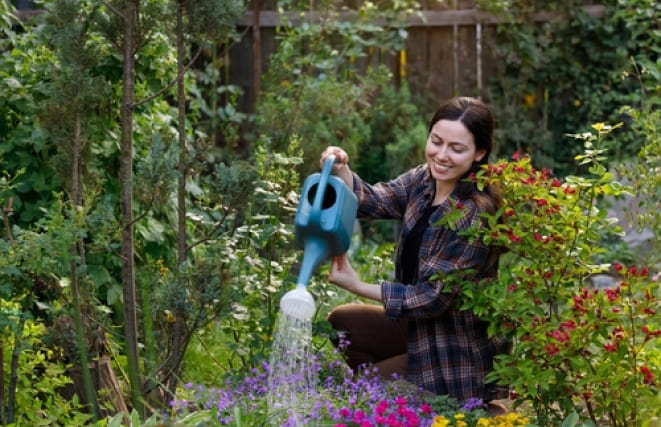Researchers and health professionals are becoming more aware of the potential mental health benefits that come from gardening and spending time in green spaces. In this article, we explore the evidence supporting the advantages of gardening and being in nature (Ainamani et al., 2022).
You may also want to read: Discover these habits that could support restful sleep!
A green escape: gardening for emotional balance
Participating in gardening activities could offer not only physical benefits but also emotional and psychological ones. It provides a constructive outlet for engaging the mind and body, potentially contributing to a sense of fulfillment. This holistic form of exercise encourages a connection with nature while allowing for physical movement, which has been linked to positive effects on mood and emotional balance. As research continues to explore these effects, gardening is being viewed as a meaningful activity for fostering mental clarity and balance in daily life (Ainamani et al., 2022).
Gardening could present a meaningful opportunity for individuals to experience both physical and emotional benefits. Immersing oneself in the nurturing of plants and spending time in nature could foster a sense of connection and fulfillment. Whether through the physical act of caring for crops or the simple act of observing greenery, engaging with the natural environment could support a feeling of contentment and satisfaction. This connection to nature has been repeatedly shown to lift spirits and create a more grounded, peaceful state of mind (Ainamani et al., 2022).
A natural boost to memory
A study published by the National Library of Medicine highlights how even brief periods of gardening may help support memory, particularly in older individuals. According to this study, by stimulating the production of specific nerve growth factors, these activities could contribute to cognitive engagement, which is essential for maintaining sharpness and mental agility. Gardening, therefore, could provide a practical and enjoyable way to nurture not only plants but also cognitive function! (Park et al., 2019).
Practical tips for incorporating gardening into your routine
If you’re looking to experience the benefits of gardening yourself, here are a few simple ways to incorporate it into your daily routine:
- Start small: A larger garden means more work, and it could quickly feel overwhelming if you don’t have enough time or resources. You could always expand your garden later! (Wimmer, 2022).
- Build connections: Connect with others who enjoy gardening. Share tips and learn from each other’s experiences (Wimmer, 2022).
- Be smart: Choose plants that grow well in your climate. Talk to local gardening experts or your county’s agricultural office for advice on what works best in your area. This could help you succeed and reduce possible disappointment (Wimmer, 2022).
Discover the power of plants
The act of tending to plants involves patience, attention to detail, and a connection with nature. By incorporating gardening into your routine, you could cultivate a healthier mind and sharpen your concentration in the process! (Park et al., 2019; Ainamani et al., 2022).
References:
1) Ainamani, H. E., Gumisiriza, N., Bamwerinde, W. M., & Rukundo, G. Z. (2022, August 11). Gardening activity and its relationship to mental health: Understudied and untapped in low-and middle-income countries. Science Direct. https://doi.org/10.1016/j.pmedr.2022.101946
2) Park, S., Lee, A., Park, H., & Lee, W. (2019, March 2). Benefits of Gardening Activities for Cognitive Function According to Measurement of Brain Nerve Growth Factor Levels. International Journal Of Environmental Research And Public Health, 16(5), 760. https://doi.org/10.3390/ijerph16050760
3) Wimme, L. (2022, July 12). Dig into the benefits of gardening. Mayo Clinic Health System. ttps://www.mayoclinichealthsystem.org/hometown-health/speaking-of-health/dig-into-the-benefits-of-gardening


